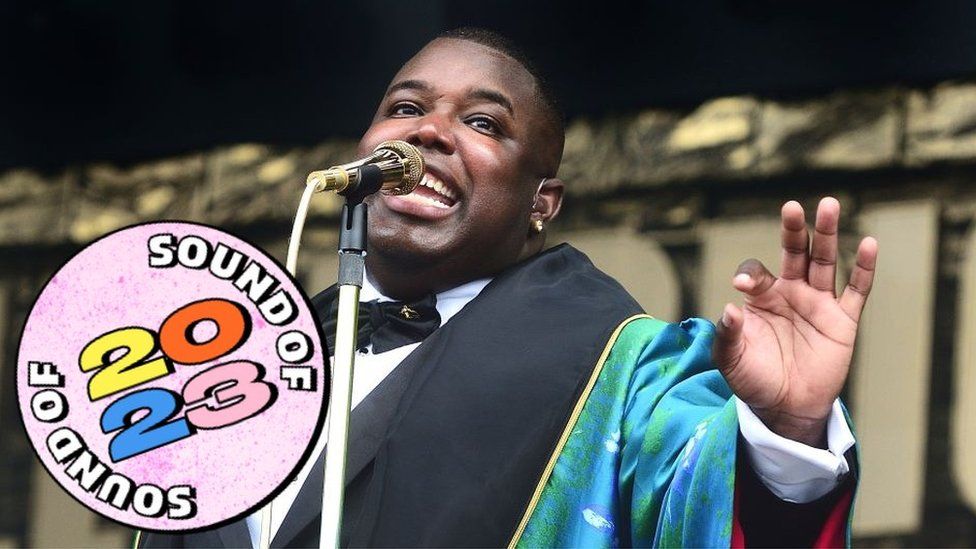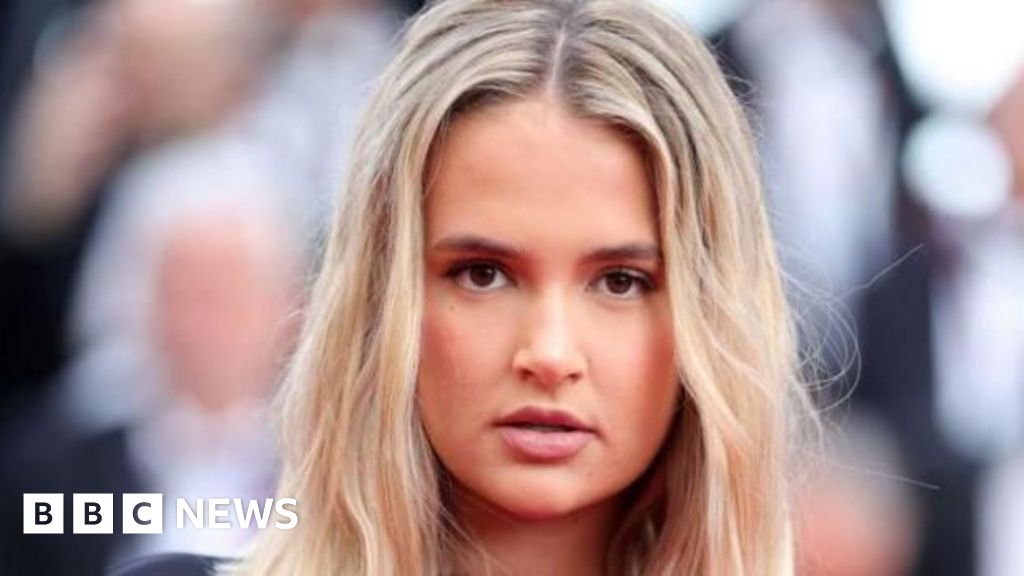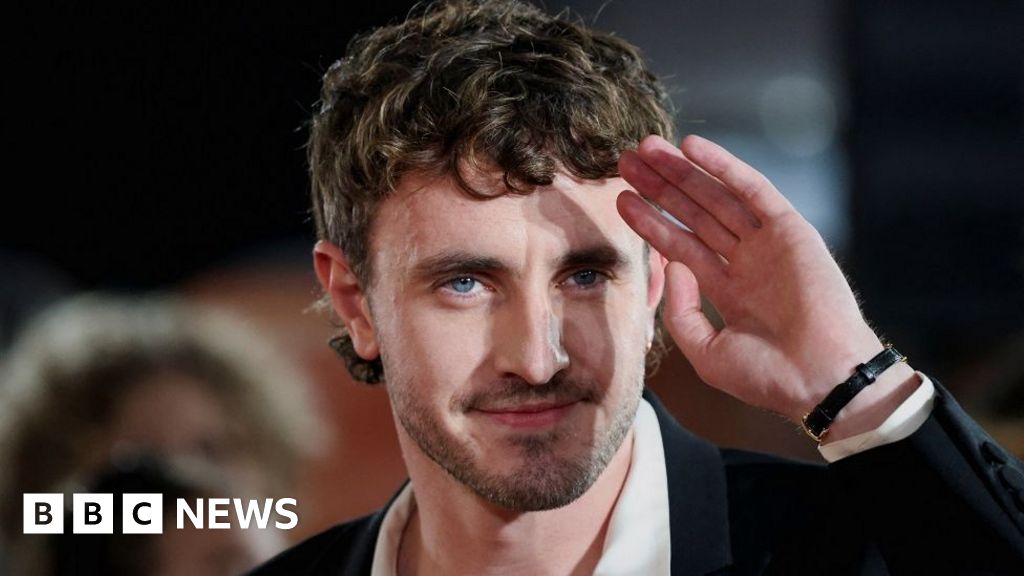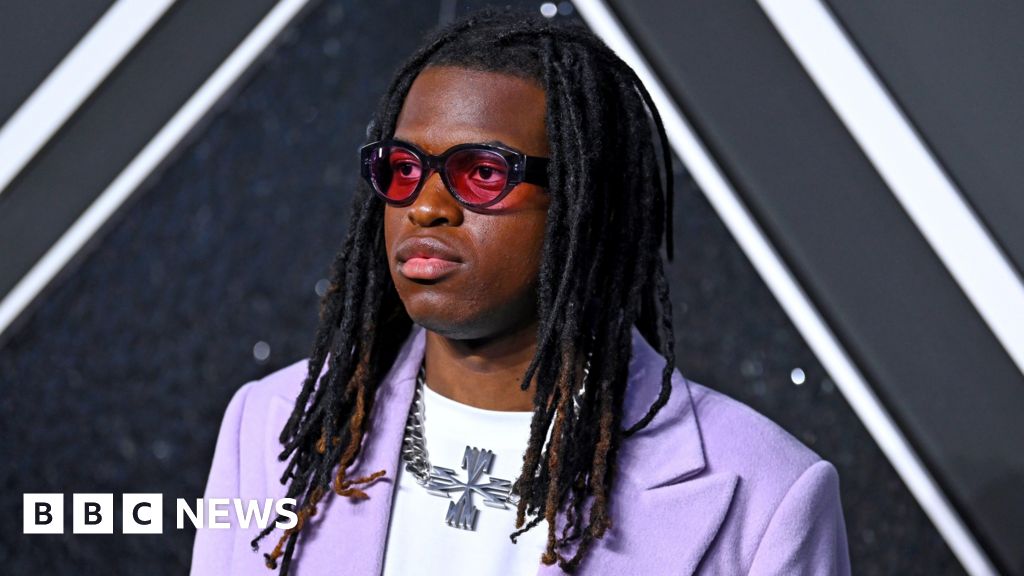ARTICLE AD BOX
 Image source, Getty Images
Image source, Getty Images
Jacob Lusk is the sharply-dressed frontman of Gabriels
By Mark Savage
BBC Music Correspondent
Whenever Jacob Lusk steps on stage with his band Gabriels, you will always find him in a tuxedo and bow tie.
Whether he's serenading Glastonbury on a balmy Saturday afternoon, or supporting Harry Styles on his US tour, the outfit remains the same. And for one very particular reason.
"If you remember, there was a time when servers wore black tie," says the singer. "So when I put the tux on, it's almost in a way of servitude.
"I'm here because you bought a ticket and I'm here because you spent your money, so this is my way of giving you the utmost respect and honour.
"It puts the show at a different level."
Formalwear or not, the band are captivating to watch. Lusk's voice is unreal, simmering just below combustion point until he leans back and unleashes all his regrets and passions and furies in an otherworldly falsetto.
The band, completed by violinist Ari Balouzian and keyboard player Ryan Hope, back him up with a sound that mixes 60s soul, ghetto funk, the black Baptist church tradition and the spectral trip-hop of Massive Attack and Wu Tang Clan.
Their music has impressed enough people to earn them fifth place on BBC Radio 1's Sound Of 2023 - with critics, DJs and fellow musicians tipping them for crossover success in the next 12 months.
"I didn't know very much about it, to be honest," says Lusk of the poll, which has previously predicted stardom for the likes of Adele, Stormzy and Michael Kiwanuka.
"But I looked it up and it's good company to be in. The only problem is, I like to win!"
Image source, Warner Music
Image caption,The band have been honing their sound for half a decade (L-R): Jacob Lusk, Ari Balouzian and Ryan Hope
Lusk is one of those singers who, when you meet him, already seems destined for stardom.
Forthright and funny, he punctuates his speech with scurrilous asides, snatches of song, and an open brag about his expertise as a baker.
"If I make you my cornbread, you'll marry me," he declares with a resounding guffaw.
But his path to success has been a long one, littered with failed record deals, untrustworthy managers and an experience on American Idol that he's described as "harrowing" and "treacherous".
Now 35, he was born and raised in Compton, Los Angeles. It's a city-suburb that's become associated with gangster rap, thanks to NWA, but Lusk says the reality is very different.
"There are no projects in Compton, it's lower middle class. The people who live in your neighbourhood might be the trashman or they work at the grocery store. So it's not as lurid as NWA made it seem.
"Those options were there for you, but the hood protects certain people - and I feel like I was one of those people. I was very studious, I was a student body president, I was the captain of the speech debate team."
Image source, Jacob Lusk
Image caption,The singer was raised in the church and gave his earliest performances in the Sunday School choir
In fact, the young singer originally intended to become a doctor, until he saw a Craigslist advert looking for backing singers.
Upon replying, Lusk discovered it had been posted by G-Funk icon Nate Dogg, whose work on songs like Warren G's Regulate and Dr Dre's The Next Episode saw him nicknamed "the king of hooks".
Lusk joined the star's gospel choir, InNate Praise, and the pair bonded one night after he missed his train home.
"He was like, 'Well, you can just stay the night here and catch the train in the morning'. That night, he told me all his war stories about Tupac and Biggie, and we started writing together after that".
But their collaboration came to an untimely end after Nate suffered a series of strokes and died in 2011 at the age of 41.
"It wasn't until he died that I found out that he'd been having conversations about getting me a deal," Lusk recalls, wistfully.
Death has been a constant and unwelcome presence in the musician's life. When he was 12, his dad "got sick and dropped dead". His grandfather was killed in a jeep accident. An uncle took his own life. His god-sister died while he was recording Gabriels' first album.
"It just makes you realise how how short and precious life is," he says. "You don't blame it on people, it just is what it is."
Unsurprisingly, grief and loss are recurring themes in his lyrics, but Lusk is a philosopher and an optimist.
If You Only Knew, one of Gabriels' most heartrending songs, is written from the point of view of the deceased, offering comfort to the people they've left behind.
"When you feel the sun shining / That's my love shining down on you / You ain't alone".
Warning: Third party content may contain adverts
The band was formed almost by accident in 2016, when Balouzian and Hope, who sideline as filmmakers, hired Lusk's church choir to sing on a commercial.
Although Lusk has sung background for Diana Ross and Gladys Knight in a professional capacity, this singing group was comprised of amateurs.
"It was the plumber and, the woman who's 55 and stays at home on social security. There was this one guy, he was tone deaf, poor thing, but he had the sweetest heart. And when he sang, he sang from his heart and it makes the difference."
Balouzian and Hope, who had never seen Lusk on American Idol (he came fifth in the 2011 series), were immediately impressed by his skills - orchestrating harmonies on the fly, and directing the singers with an equal of empathy and discipline.
They asked him to come to Hope's studio in Palm Springs to make more music. When he declined, they camped outside his church with a remote recording studio. Pretty soon, they were inseparable, despite having "literally no shared reference points".
"We are three extremely different people from the way we look, the way we talk, the way we act, to the way we were raised - but we've become extremely close friends.
"And that's because there are more things that make us all alike than that make us different."
Apocalypse now
The trio took things slowly at first, holding down day jobs and meeting up once a month as they honed their sound.
They didn't release anything until 2018, when a piece of music they'd composed for a Prada commercial was picked up by seminal European label R&S Records.
But it was 2020's Love And Hate In A Different Time that really put them on the map. Written as a response to Covid lockdowns and the death of George Floyd, the song was a cry of pain that resonated around the world.
Warning: Third party content may contain adverts
"It was almost apocalyptic," Lusk says of his state of mind at the time.
"We felt like the world was ending. I don't want to get political, but we all watched as like this dude got killed by a police officer, literally on camera.
"And everyone, no matter where you stand on the political spectrum, had that same feeling of like, 'What the hell is going on?'"
Music, he concedes, can't offer any answers. But what it can do is provide a shared place to experience grief.
"To know that you're not alone is the key," says Lusk. "It's like, 'Oh, they feel the same way that I feel. Thank God.'"
Image source, Warner Music
Image caption,The group released the first part of their debut album, Angels And Queens, last October. Part two is due in March
The song was championed by Elton John (a rite of passage for almost every new artist) and saw Gabriels booked to play with Harry Styles when he toured the US last year.
"To have these people open these doors for us is incredible," marvels Lusk. "Elton John? He's a legend. Harry Styles? I have not one bad word. Best experience of my life."
As Gabriels' star ascends, Lusk wants to pay those favours forward.
"Although the BBC Sound poll is technically a competition, I just discovered [fellow nominees] Flo, and I can't stop singing, 'I'm a put your stuff in a cardboard box'.
"We're all unique. There's space for all of us.
"So I may want to win. But I want us all to win."

 1 year ago
28
1 year ago
28








 English (US)
English (US)